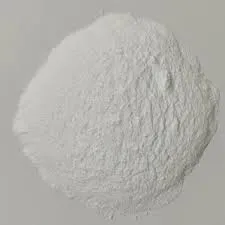The Three Main Digestive Enzymes Unveiling the Key Players in Digestion
Digestion is a complex biochemical process that transforms the food we consume into the nutrients our bodies need to function effectively. At the core of this process are digestive enzymes—biological catalysts that speed up chemical reactions in the digestive tract, ensuring that food is broken down into smaller, absorbable components. While there are numerous digestive enzymes in our bodies, three main types are particularly vital amylase, protease, and lipase. Each of these enzymes plays a crucial role in breaking down different classes of macronutrients carbohydrates, proteins, and fats, respectively.
Amylase The Carbohydrate Catalyst
Amylase is an enzyme that initiates the digestive process for carbohydrates. It is produced in two primary locations the salivary glands and the pancreas. Salivary amylase, also known as ptyalin, is released in the mouth as we chew our food. Its primary function is to break down starches—complex carbohydrates—into simpler sugars like maltose and dextrin. This process starts even before the food reaches the stomach, marking the beginning of carbohydrate digestion.
Once the food enters the small intestine, pancreatic amylase continues the breakdown of carbohydrates. The small intestine is lined with additional enzymes that further refine the sugars into monosaccharides, mainly glucose, which can then be absorbed into the bloodstream. The significance of amylase cannot be understated; without it, our bodies would struggle to utilize the energy stored in carbohydrates effectively.
Protease The Protein Powerhouse
Protease is the enzyme responsible for protein digestion. Proteins are large, complex molecules made up of amino acids, and digesting them requires a series of steps. This enzyme is produced primarily in the stomach and pancreas. In the stomach, the acidic environment activates pepsinogen into its active form, pepsin, which begins the process of protein digestion by breaking down the protein chains into smaller peptides.
what are the three main digestive enzymes

As food moves to the small intestine, pancreatic proteases, such as trypsin and chymotrypsin, continue the process of breaking down these peptides into even smaller units, ultimately resulting in free amino acids. These amino acids are essential for various bodily functions, including the repair and growth of tissues, the production of enzymes and hormones, and the support of immune function.
Lipase The Fat Feller
Lipase is the enzyme tasked with digesting fats, which are crucial macronutrients for our health. Unlike carbohydrates and proteins, fats need to be emulsified before they can be effectively digested. This emulsification process is aided by bile salts produced by the liver and stored in the gallbladder. When fats enter the small intestine, bile salts break them down into smaller droplets, making them accessible to lipase.
Pancreatic lipase is the primary enzyme responsible for fat digestion in the small intestine. It breaks down triglycerides—fats stored in food—into free fatty acids and glycerol. These components are then easily absorbed through the intestinal wall and into the bloodstream, where they can be used for energy or stored for later use. Lipase plays a crucial role in helping the body utilize dietary fats, provide energy, and support cell membrane structure.
Conclusion The Symphony of Digestion
In conclusion, amylase, protease, and lipase are the three main digestive enzymes essential for breaking down carbohydrates, proteins, and fats, respectively. Each enzyme has its own distinct role in the digestive process, initiating the breakdown of food and allowing the body to absorb the essential nutrients it needs. The synchronization of these enzymes is vital for maintaining overall health, as they ensure that we derive energy and nourishment from the foods we consume.
Understanding the importance of these enzymes not only sheds light on how our digestive system works but also emphasizes the significance of a balanced diet. Inadequate intake of any macronutrient can lead to deficiencies, affecting enzyme production and overall health. Therefore, it's crucial to consume a variety of foods rich in carbohydrates, proteins, and fats to support our digestive enzymes, ensuring our bodies function optimally.

